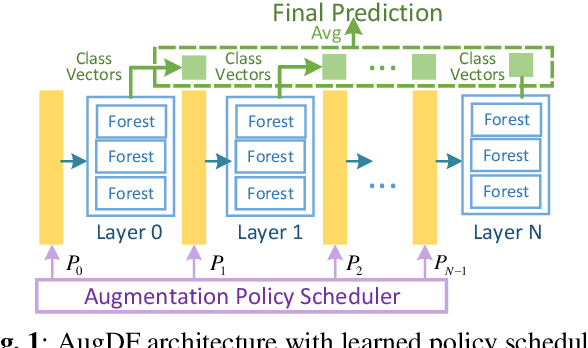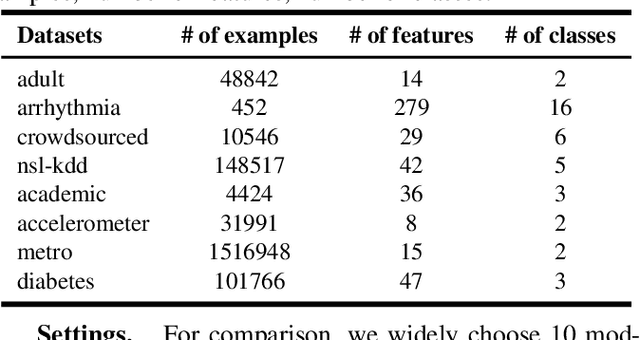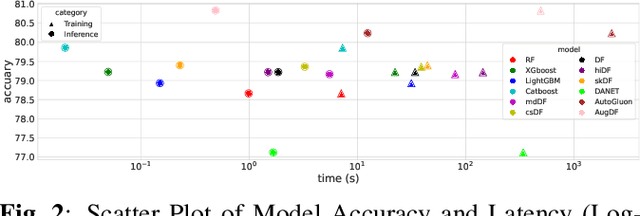Improve Deep Forest with Learnable Layerwise Augmentation Policy Schedule
Paper and Code
Sep 16, 2023



As a modern ensemble technique, Deep Forest (DF) employs a cascading structure to construct deep models, providing stronger representational power compared to traditional decision forests. However, its greedy multi-layer learning procedure is prone to overfitting, limiting model effectiveness and generalizability. This paper presents an optimized Deep Forest, featuring learnable, layerwise data augmentation policy schedules. Specifically, We introduce the Cut Mix for Tabular data (CMT) augmentation technique to mitigate overfitting and develop a population-based search algorithm to tailor augmentation intensity for each layer. Additionally, we propose to incorporate outputs from intermediate layers into a checkpoint ensemble for more stable performance. Experimental results show that our method sets new state-of-the-art (SOTA) benchmarks in various tabular classification tasks, outperforming shallow tree ensembles, deep forests, deep neural network, and AutoML competitors. The learned policies also transfer effectively to Deep Forest variants, underscoring its potential for enhancing non-differentiable deep learning modules in tabular signal processing.
 Add to Chrome
Add to Chrome Add to Firefox
Add to Firefox Add to Edge
Add to Edge